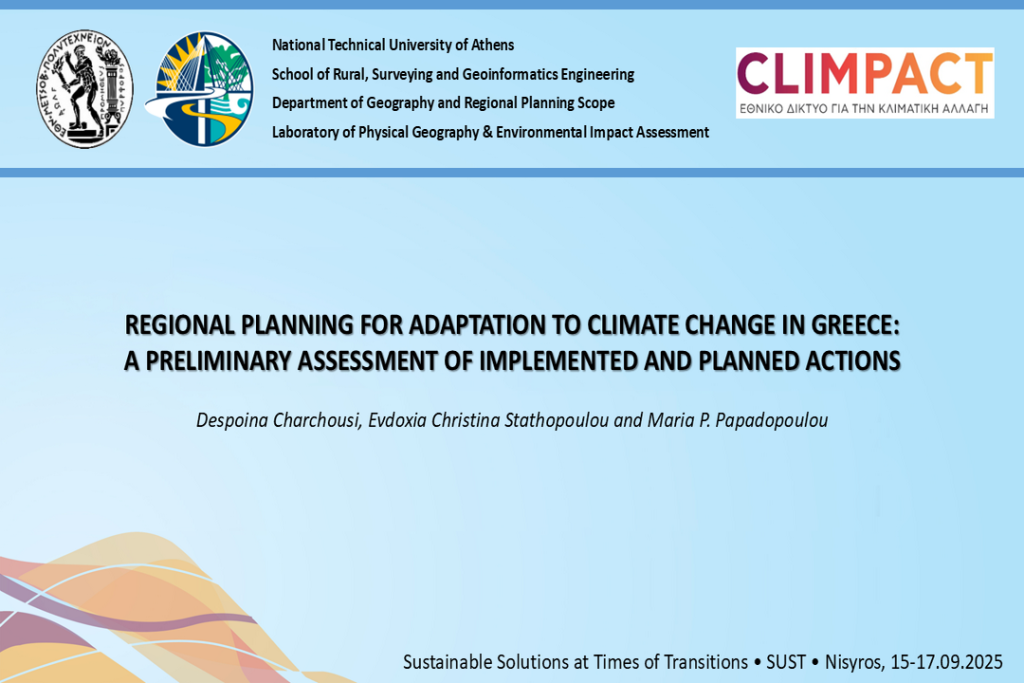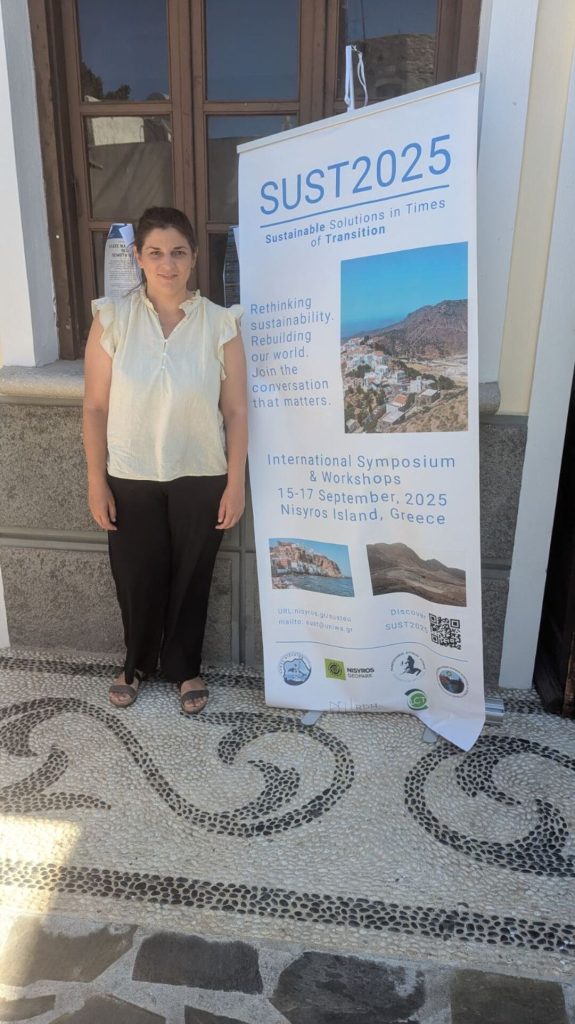International Symposium & Workshop “Sustainable Solutions at Times of Transition” (Sust 2025)
The International Symposium & Workshop “Sustainable Solutions at Times of Transition” (Sust 2025), hosted by the Municipality of Nisyros in collaboration with the Nisyros Geopark and University of West Attica, took place on the island of Nisyros from September 15 to 17.
The Symposium focused on ecological and social resilience amidst climate change challenges.
It addressed the urgent need for transformative sustainable practices to confront extreme weather, food system failures, and social inequalities.
Participants shared research, experiences, and strategies to integrate resilience and equity into societal frameworks, ultimately enhancing sustainability amidst ongoing climate disruptions and fostering future collaborative efforts.
Among them, PhD candidate Despoina Charchousi, researcher of our Laboratory of Physical Geography and Environmental Impacts, presented a paper entitled “Regional planning for adaptation to climate change in Greece: A preliminary assessment of implemented and planned actions”.
This paper was performed within the project “Support the upgrading of the operation of the National Network on Climate Change (CLIMPACT)” of the General Secretariat of Research and Innovation.
Authors: Despoina Charchousi, Evdoxia Christina Stathopoulou, Maria P. Papadopoulou
Key points
Greece’s National Adaptation Strategy to Climate Change (NASCC) aims to enhance resilience against climate impacts through the development of 13 Regional Adaptation Plans (RAAPs). While seven RAAPs have been approved, the remaining six are currently in progress.
This work focuses on mapping, assessing, and prioritising adaptation measures proposed in the RAAPs and those already implemented.
Adaptation measures are categorised into soft, development, and hard approaches, with an emphasis on their respective sectors.
Structured interviews with regional executives assess implementation levels in critical pilot Regions, exploring criteria for measure selection, future project prioritisation, financial instruments, and socio-economic impacts.
Initial findings indicate variations in maturity and implementation performance across Regions, necessitating a systematic assessment tool to measure adaptation performance.
Social acceptance obstacles for these measures also require thorough investigation.



